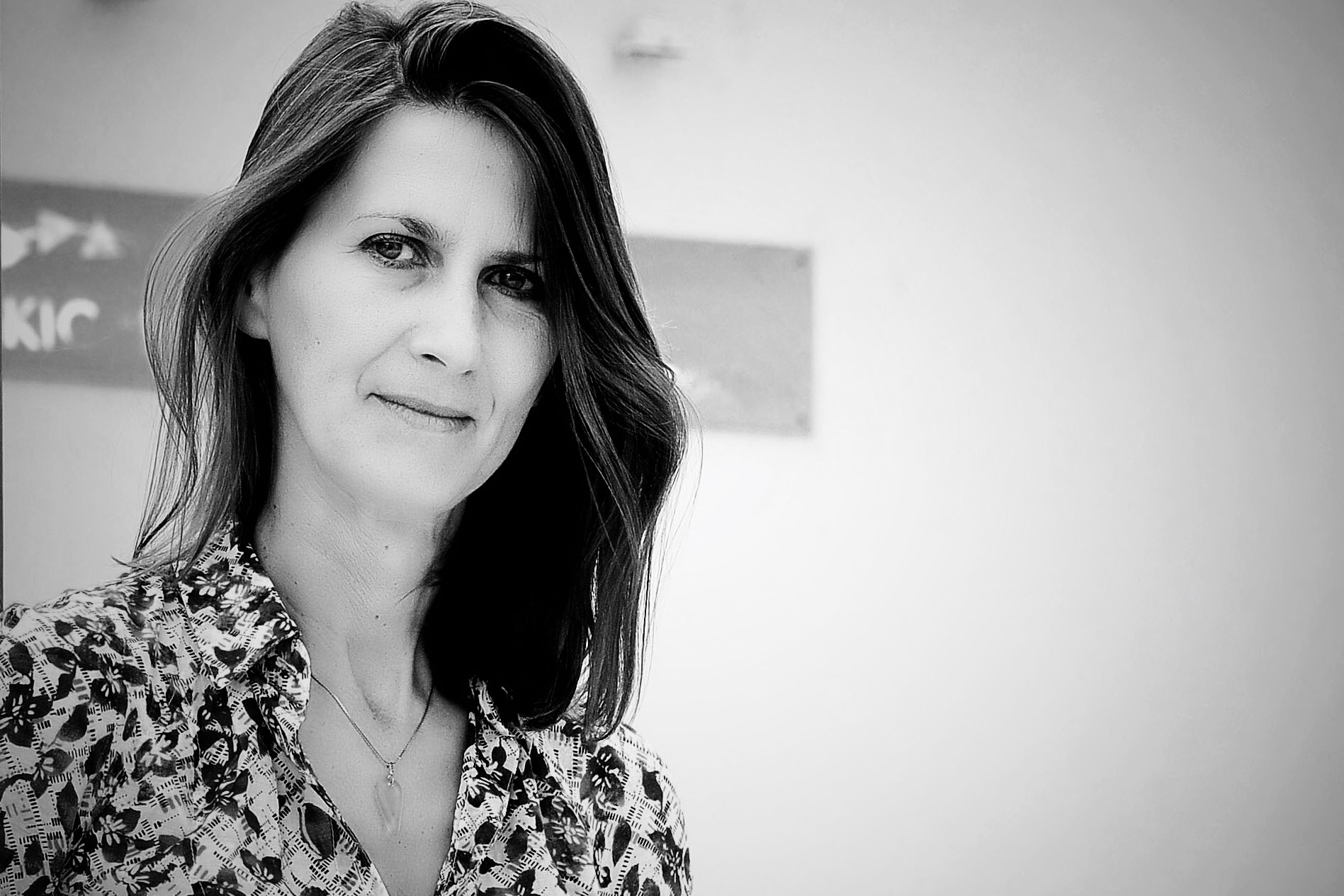We had the opportunity to talk with Maja Popović, the founder of the Jazz Art association and coordinator of the music program in KIC, Budo Tomović.
#mnetoday Considering the fact that you are an instigator of important musical projects in Montenegro and that you participate in the implementation of many programs, are you satisfied with the direction they have taken?
MP: In general, I’m satisfied, they are developing in a good direction and all they need is greater support.
#mnetoday What do you think of some of the specific events, such as JAM (Jazz Appreciation Month)?
MP: Jazz Appreciation Month has just turned ten years old. It’s the largest jazz event in Montenegro. It started after several years of organizing jazz concerts at the “Budo Tomovic” Cultural Information Center of Podgorica (KIC). Then I started the Jazz Art Association with the idea of developing jazz programs and spreading JAM throughout Montenegro. We have put together concert tours, film cycles, photo exhibitions, workshops, lectures and even jazz music productions. That’s how we wanted to be closer to our audience, especially to the younger generation.
We are happy that we’ve gotten to work together with many great international jazz musicians who shared their knowledge and experience with us, our audience and the young learners. These first-class jazz authors such as trumpeter Steve Gut, bass player and composer Patrick O’Leary, pianist and composer Eli Yamin, singer Dena DeRose, pianists and composers such as Shai Maestro, Vasil Hadzimanov and Tigran Hamasyan, saxophone player David Binney, violinist Christian Howes, percussionist Zlatko Kaucic and guitarist Toni Kitanovski were some of our great guest-performers and educators. Thanks to our ongoing workshops, several classical trained students from Podgorica’s “Vasa Pavic” Art School for Music and Dance” turned to jazz, and finished their jazz education at the international music colleges in Graz (KUG, Jazz Department) and Boston (Berklee College of Music). That’s all helpful for our small jazz community and its development.
This is also the fifth anniversary of the Montenegro Summer Camp for Chamber Music, the projects we are working on within the music programs in KIC also represent a large part of the music season during the year, and we are constantly working on these aspects. There is not much left when it comes to such projects. And the support we have is moderate. We are striving towards development, and thus we need support in order to be able to develop our projects properly and live up to the task, while still keeping up a pace that we deem to be good for our music scene and the musicians, who are making their first achievements in this environment.
#mnetoday After all those years of development, have the music projects gained international character?
MP: When it comes to the global image of the music on offer in Montenegro, a lot of music genres are being fostered, many festivals are taking place and being implemented, especially the summer festivals of different genres starting from Sea Dance in Budva, to Lake Fest in Nikšić, Kotor Art Festival and its section, Don Branko’s Music Days Festival, which mostly belongs to the realm of classical music, followed by the Days of Music in Herceg Novi, Espressivo in Cetinje and A Tempo Festival in Podgorica, and they all gained international character; then there is a variety of music programs organized at the festivals, which have already developed a long tradition and a good reputation, such as Theatre City (‘Grad teatar’) in Budva and ‘Barski ljetopis’.
The intensive summer cultural season will then continue on during the rest of the year (from October to June), thanks to the work of several institutions (first of all KIC Budo Tomovic, and the Music Center-Montenegrin Symphony Orchestra, both in Podgorica) representing a continuity and development in life for the local musicians and domestic music scene, as well as a way of creating connections with international musicians. This is very important to us; through each project that I work on I try to additionally motivate and connect our musicians with other musicians that are abroad through our program-selections. It is important to create closer connections with the world, with Europe, and that we, as a society, are satisfied with being right here where we are, and not elsewhere. It is also c,rucial that we are able to realize some of our dreams here, in the same way that musicians in France or Norway etc. have long ago started achieving the standards that we need as well, in order to develop social awareness about cultural needs and conditions that are necessary so that musicians can create and share their music with others. I think that we are on the right path; I am just saying that we need greater support so that we don’t have to wait too long before the necessary positive changes can take place.
What is very important for the Montenegrin culture and music in general is that everything must be done in a transparent manner. Programs should not be centralized, nor should such intentions be supported; various institutions are engaged in music programs and other areas of culture in different manners, and the institutions should become integrated and start cooperating with each other on a more regular basis, thus achieving an overall development of the music scene.
#mnetoday Which music events in Montenegro would you particularly single out and why?
MP: For me, each music event in Montenegro is important because it has the capacity to show what Montenegro, as a country, can achieve at this moment. Of course, I would not include commercial music in this selection since it represents a different aspect of music. I would emphasize the summer season of various festivals which serve as a means of initiating cultural and entertainment life, along with the support it provides to the summer tourist offerings.
The effort to achieve a regular concert season of the Montenegrin symphony orchestra, which is currently in a phase of continuous development and is on track, is apparent thanks to a great deal of assistance provided by the state.
I would especially emphasize the innovative programs that we are creating in KIC during the year, with the purpose of modernizing the music scene, improving the repertoire, putting more focus on performing chamber music and introducing some more modern and contemporary music aesthetics, which makes us interesting and recognizable. We are also striving to use projects from the realms of culture for the purpose of directing more attention to education and to join those two segments.
As I have previously mentioned, the development of music festivals is very important, but I think that many organizers have neglected the existence of important domestic musicians who should be given a chance and be included in the projects and festivals that are being developed in Montenegro. This critique is aimed at the organizers and directors of various music festivals in Montenegro, with the purpose of raising awareness about the fact that domestic musicians are often neglected in these projects. The Ministry of Culture should take care of this aspect, especially when it comes to the projects which benefit from their financial support. At this point we have more important musicians in Montenegro than we have ever had before.
#mnetoday Could you select some of the more important names from the world of music in Montenegro who, according to your own opinion, are neglected in that aspect?
MP: I would not single out any names, but unfortunately there are many neglected musicians. We very rarely have a chance to listen to Montenegrin musicians at the summer festivals, whether as soloists, with the orchestra, chamber musicians, or composers.
#mnetoday Do you think that the media pays enough attention to these kinds of musical events, manifestations or festivals?
MP: Unfortunately, the media have not had any music critics for a long time, and they do not pay any serious attention to music. In general, I think that criticism of art is not welcome in our country. Thus, it all comes down to announcements and potential reviews, but not proper music critiques. There are a few colleagues who write critiques from time to time. The media informs the public about the upcoming events, but they mostly do not have any expert critics who would visit a concert and write their impressions about it. Unfortunately, that is not the only bad aspect of the current situation in the media, and it has been so for years; I notice that the media are accustomed to ascribing the same importance to all the projects, there is no selection, i.e. critical awareness. We are familiar with the existence of paid reviews and marketing which can create a certain fleeting impression on the public, but it does not mean that the created image is real or that we really have music critics. I don’t know how all of this can be solved, but the media currently don’t seem to show an interest in music, they don’t have enough educated people who keep up with the musical life in Montenegro and in general, the musical life beyond Montenegro’s borders, in the sense that they could leave a mark and understand what is currently happening in our country and beyond.
#mnetoday What do you think about the audience in Montenegro when it comes to music?
MP: Our audience is very sensible, very educated and curious, and they like to attend the concerts. We are a small environment, and thus it is important to reach quality in terms of the concerts on offer, at the expense of quantity. We, in KIC, are satisfied with the attendance of music events. But, as you know, it can always be better! I have, for a long time already, been visiting other programs that were not organized by us, and I have noticed that people are honestly interested in attending musical events, this empowers them, raises their critical awareness and enriches their knowledge of music and general education, and improves their spiritual development. There is an audience, but sometimes it should be searched for in different places, it should be developed and provoked by providing them with good projects, drawing their attention to the upcoming generations and educating them through art and culture.
#mnetoday Can you give us a musical gift by recommending someone that we should listen to?
MP: That is a really difficult question… There are so many beautiful aspects of music. But I would suggest to the music lovers that they discover the music played by the British composer Frank Bridge.
#mnetoday For our last question, please tell us more about the Jazz association plans for the year 2017?
There’s a lot of planning going on for 2017 especially for the JAM festival. We are going to host the New-York-based composer and pianist Eli Yamin and his quartet. They will tour Montenegro and work on the Montenegrin production of his wonderful ‘Message from Saturn’ jazz musical for children. Actually, he is an expert in composing jazz music for young listeners in the form of musicals. Thanks to his fruitful collaboration with the librettist Clifford Carlson, he has several musicals in his own repertoire. We are very glad and thankful for our second cooperation. (Our first collaboration was 2011, when we produced his Nora’s Ark jazz musical for children on the stage of Podgorica’s Cultural Center, KIC.) It was an unforgettable experience for all the participants of the project, professional musicians from the US, and local students and teachers of the Vasa Pavic Art School for Music and Dance. They will work together again (this time with a new generation of young students that will come together with their young teachers from the same school). All of us are very happy to make this happen.
Other events that we are considering, in the JAM program, will promote the Ramsbol-Corvino-Bilgen trio, the new musicianship of talented Montenegrin guitar player Filip Gavranovic (alias Pippo Corvino) who now lives in Austria. The other ensemble we would like to promote here in Montenegro is the Belgrade Dixieland Orchestra, one of the rare professional ensembles who plays Dixieland music in our region. Next year the Jazz on Film series will be dedicated to the centenary of jazz giants such as Thelonious Monk, Ella Fitzgerald, Dizzy Gillespie, and Lena Horn. We will learn about their lives and music through great documentaries and feature films. We are also expecting some prominent international lecturers to complete this subject.
We want to inspire young and old generations, to make them happy and to inspire them through jazz music and its history. That’s why our motto for the next JAM is “Jazz for All Ages”. So, don’t miss the opportunity to support us and attend our activities. Our wish is that you come and join us!


